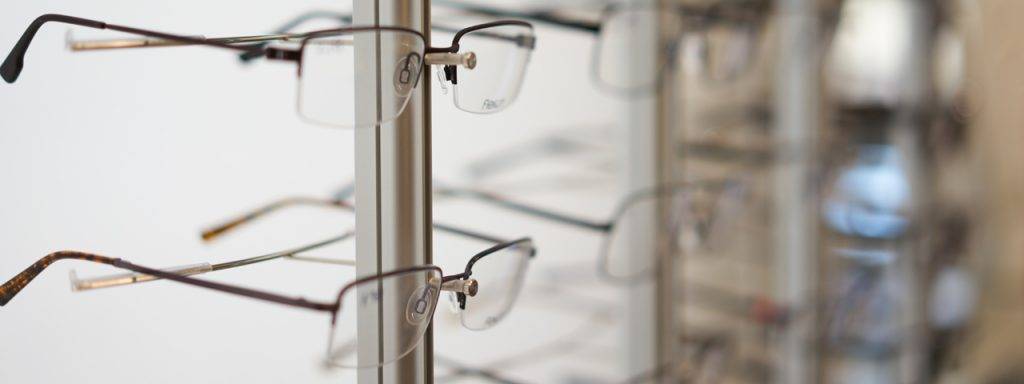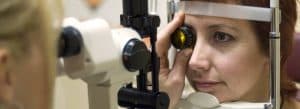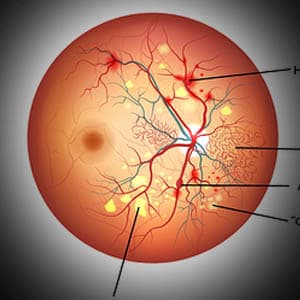If you have diabetes, high blood sugar levels may be the cause of your blurry vision.
Blurred vision, or any changes to your vision can be quite concerning. But before you panic, understand that although blurry vision is commonly associated with diabetes, it can sometimes just be a temporary problem.
How do I know if I have blurry vision?
Blurry vision is one of the earliest symptoms of diabetes.
Blurry vision is typically defined as the inability to see images or details of images clearly; when your vision lacks sharpness. This can be compared to viewing a picture that contains objects or images out of focus.
Blurry vision can be unilateral, affecting only one eye, or bilateral, affecting both eyes. You may also notice that your vision is either always blurry, sometimes burry, or only blurry on occasion.
Diabetes-related blurry vision may occur for a variety of reasons:
- High blood sugar levels (hyperglycemia)
- Low blood sugar levels (hypoglycemia)
- Fluctuating blood sugar levels
In some cases, blurry vision may be experienced if you are adapting to a new dosage of insulin medication.
Hyperglycemia
High blood sugar levels can cause fluid to move in and out of parts of your eye, often leading to swelling of the eye’s lens. The lens is responsible for focusing light onto the retina at the back of your eye.
When the lens swells, the shape of the lens is affected, consequently affecting your ability to see clearly.
When blurry vision is a result of hyperglycemia, clear vision will typically return when blood sugar levels fall within a normal range— usually between 70-130 mg/dL before meals, and less than 180 mg/dL one to two hours after meals.
How do I know if I am hyperglycemic?
If your blood sugar levels are too high, you may experience any of the following symptoms:
- Blurred vision
- Headaches
- Increased thirst
- Frequent urination
- Weight loss
- Fatigue
Hypoglycemia
If your blood sugar levels fall too low, usually below 70 mg/dL, you may experience blurry vision or other visual disturbances.
While hyperglycemia can affect the shape of the eye’s lens, hypoglycemia can affect brain functioning.
The good news is, if blurry vision is caused by hypoglycemia, in most cases, clear vision will return as soon as your blood sugar levels return to normal.
How do I know if I am hypoglycemic?
If your blood sugar levels fall too low, you may experience any of the following symptoms:
- Irregular or fast heartbeat
- Fatigue
- Hunger
- Shaking or sweating
- Irritability
- Anxiety
- Pale skin
- Tingling or numbness of cheek, tongue, or lips
Hypoglycemia can become a medical emergency if your body does not respond to treatment aimed at raising blood sugar levels quickly— such as drinking juice or soda, eating a sugary snack or candy, or taking glucose tablets.
If hypoglycemia isn’t treated right away, you may experience more severe symptoms that require immediate medical attention, such as:
- Confusion
- Abnormal behavior
- Blurred vision or other visual disturbances
- Seizures
- Loss of consciousness
If you have diabetes, contact an eye doctor near you, who can diagnose and discuss the best treatment options.
SEE RELATED: A Deeper Understanding of Diabetic Retinopathy
Fluctuating blood sugar levels
Blood sugar levels that fluctuate throughout the day or from time to time, can cause occasional blurry vision.
It is highly recommended to speak with your doctor about ways to regulate your blood sugar levels, as a constant fluctuation can cause many uncomfortable symptoms and can be harmful to your body.
Long term effects of diabetes
Over time, uncontrolled diabetes or chronic hyperglycemia can cause damage to the blood vessels throughout the body, including those in your eyes.
When the blood vessels in the retina become damaged, diabetic retinopathy, a serious eye disease, can develop.
Diabetic retinopathy occurs when the retinal blood vessels leak blood and fluid into the retina, causing blurred vision and eventually leading to vision loss.
- Diabetic retinopathy is the leading cause of permanent vision loss among people with diabetes.
- Half of the people diagnosed with diabetic retinopathy will also be affected by permanent vision loss from diabetic macular edema.
Diabetic macular edema occurs when the fluid from the damaged blood vessels also leaks into the macula, the center of the retina, causing central vision loss and loss of vision for fine details.
Treatments to help slow down the progression of these sight-threatening diseases are aimed at preventing further vision loss. It is therefore crucial to visit your eye doctor for regular eye exams, as per your doctor’s recommendations.
When to see a doctor
Blurred vision can be a sign that your diabetes is not being controlled properly.
Speak with your doctor to determine what you can do at home to help regulate your glucose levels. In most cases, this involves consuming a healthy diet, getting regular exercise, and keeping your cholesterol and blood pressure levels under control.
Contact your eye doctor as soon as possible if blurred vision comes on suddenly or gets worse over time— this can indicate a serious condition.
According to the American Diabetes Association (ADA):
- Adults with type 1 diabetes should have an eye exam within five years of their diagnosis.
- Adults with type 2 diabetes should have an eye exam following their diagnosis.
- Women with diabetes who are pregnant or are planning to become pregnant should have an eye exam as soon as possible.
If you have been diagnosed with diabetes, be sure to visit your eye doctor regularly for follow up eye exams.
LEARN MORE: Guide to Eye Conditions
Schedule an appointment with an eye doctor for a comprehensive diabetic eye exam, and to discuss any questions you may have about treating this condition.
Frequent eye exams, as well as controlling your blood sugar levels will help to ensure that your eyes and body remain healthy.










